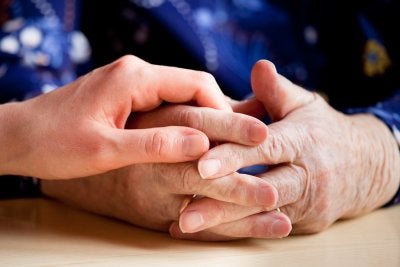-
Empowering Disabled Kids Through Dance
Kids who require assisted living services from a caregiver agency near Memphis are often defined by their disabilities, rather than by their abilities. Parents can meet many of their needs with the help of assisted living services, but disabled kids also need to feel capable, accomplished, and as independent as possible despite the need for home care assistance. Dance is a fun and empowering way to accomplish this. Special needs dance classes give disabled kids access to jazz, ballet, hip hop, and tap.
Boys and girls of all ages and all ability levels can find joy in the creative expression of dance. Whether they are wheelchair-bound or limited to leg braces, kids who dance learn that they really can do anything they put their mind to. The benefits of dance aren’t just emotional, but also physiological. Dancing is excellent exercise for kids who generally can’t run around and play quite like other kids. The movements are modifiable to suit all sorts of physical limitations, and the physical activity supports muscle strength, flexibility, and range of motion.

-
When Is Hospice the Right Choice?
If you or a loved one has a terminal illness, it’s time to consider hospice care. This model of care has an undeserved stigma attached to it, but families who do choose hospice care near Memphis discover that it offers many benefits. Terminally ill caregiving is difficult for families to handle by themselves. Hospice opens up new possibilities for gracious and dignified living toward the end of life.

When Curative Treatments Aren’t Working
Modern medicine can work miracles, but sometimes, it just isn’t enough. Gravely ill patients do have the option of considering clinical trials when they have exhausted other treatment possibilities. But sometimes, clinical trials aren’t a possibility either if the patient isn’t eligible for them or there are no appropriate clinical trials being offered nearby. When medical treatments intended to cure the disease are no longer a feasible option, hospice care is a wise decision.
When Curative Treatments Do More Harm Than Good
Some patients have the option to choose curative treatments that are intended to extend life, but are not expected to cure the disease. For example, patients with advanced lung cancer might have access to some of the newer medications intended to give them a few more months of life. But not all patients want to take this route. Some curative treatments, especially for terminal illnesses like advanced cancer, can cause complications that may reduce quality of life. If aggressive medical care isn’t the answer, then perhaps hospice care is.
When Families Need Flexible Options and Sensitive Care
Hospice care does not have to involve confinement to a hospital bed in a lonely facility. It’s actually a flexible choice that treats patients and their families with the respect and dignity they deserve. Many hospice patients remain in their own homes, surrounded by their loved ones. Every hospice patient’s care plan is customized to meet his or her needs—and the needs of the family. A care plan may include placing durable medical equipment in the home, such as oxygen therapy equipment. Contrary to popular belief, hospice patients do continue to receive medical care. They can receive any medical care that can manage symptoms and improve quality of life. This is known as palliative care, and it allows patients to live the remainder of their lives with dignity and grace.
-
Supporting Your Healing After Surgery
It’s often thought that assisted living services are primarily used on a long-term basis, but in fact, many individuals can benefit from temporary elder care from a caregiver agency near Memphis. To support your recovery after surgery, Caring Companions provides transitioning home care , including healthy meal preparation.
When you watch this video, you’ll learn about the types of foods that can best support your recovery after surgery. You can boost your immune system by choosing oranges, kiwis, and strawberries for the extra vitamin C. Your immune system also needs plenty of lean protein from sources like low-fat dairy products, poultry, fish, and nuts. It’s important to eat enough fiber after surgery, since prescription painkillers often cause constipation. Old-fashioned rolled oats and prunes are excellent sources of fiber.
-
Protecting Your Health as a Caregiver
Family caregivers are selfless individuals who restructure their daily lives in order to provide much-needed services to their loved ones. Providing elder care to an aging parent or other relative is a loving act, but it can also become a heavy burden that leads to ill health. Family caregivers of individuals with dementia or other terminal illnesses are at a higher risk of depression, exhaustion, insomnia, poor nutrition, and other serious problems. In order to provide excellent care for your loved one, it’s essential to care for yourself. Before you suffer from complete caregiver burnout, contact a caregiver agency in Memphis to arrange respite services.
Respite care is a temporary arrangement in which a professional in-home caregiver looks after your loved one for a pre-determined time period. This may be a few hours or a few days. During this time, give yourself permission to relax and take care of yourself. Go to the gym, eat a nutritious meal, take a much-needed nap, or spend some time browsing at your local library. To get the most benefit out of temporary elder care services, consider arranging for them on an ongoing basis such as one day each week.

-
Recognizing the Importance of Transition Care
Transition care is an essential part of bridging the gap between hospitalization and the return to normal activities. It is especially important for seniors, who may have longer recovery periods, and people of any age who are recovering from surgery or an illness that has limited their mobility. Contact Caring Companions near Memphis to find out how our in-home care providers can assist with transition care service. Here are some of the reasons why transition care is so important.

Avoid Injuries
Without in-home care from an assisted living provider, a person recovering from surgery, an illness, or injury runs the risk of re-injury or exacerbating the condition. This can lead to frustration, delayed recoveries, and re-hospitalization, which in turn increases the risk of infection. An in-home caregiver can ensure the safety of a patient transitioning back to home by providing help with cooking, household responsibilities, and errands, allowing you or your loved one focus on getting better.
Make Faster Recovery Progress
Having a caregiver provide in-home transition care help you or your loved one have a faster recovery. In addition to helping to prevent injuries, caregivers can provide medication reminders, drive you or your loved one to physical therapy, and remind you when to do exercises recommended by the doctor. He or she can also help with healthy meal preparation to provide the necessary nutrients to boost recovery. All of this extra assistance is an investment in faster recovery times.
Peace of Mind
Transition care provides enormous peace of mind to people coming from the hospital or rehab facility and their families. By hiring a caregiver, families can feel confident that their loved ones are safe and cared for while recovering from home without having to take time off from work or travel from a distance. In-home caregivers welcome the input of families and will work with everyone to come up with the right plan for transition care.
-
What to Expect After a Hip Fracture
A hip fracture can be a painful and debilitating injury that requires a lengthy recovery. Generally, people can benefit from having an in-home caregiver to assist during their recoveries, when their mobility may be limited. Here is a look at what you can expect while you recover from a hip fracture and how in-home care in Memphis may be helpful.

Rehabilitation
After surgery to repair your hip fracture , you will undergo physical therapy during rehab in the hospital where you had your surgery or in a rehab facility. This physical therapy is designed to help you regain some basic mobility and begin to rebuild the muscles that will support your repaired hip. Usually, you will not be allowed to return home until you can confidently go up and down the stairs. You may be surprised how quickly you are out of bed and moving around, but this is actually an important part of your recovery. In most cases, patients can avoid complications associated with hip fracture surgery by walking as soon as possible.
Transition Care
When you return home from surgery, there are still many activities you won’t be able to do on your own. During this time, transition care provided by an in-home caregiver can be helpful, especially if your loved ones must work during the day. An in-home caregiver can help with everything from personal hygiene needs to cooking and light housework. A transitional caregiver can also be present to help you stick to the recovery plan recommended by your surgeon, including getting up and walking around at regular intervals. You won’t be able to sit for longer than 45 minutes without getting up and moving. A physical therapist may also come and visit you in your home during this time.
Return to Normal Activities
The rate at which patients can return to their normal activities varies. If you work an office job, you may return to work within six to eight weeks of surgery. You may not be able to return to physically demanding activities until three to six months after your procedure. Your surgeon will carefully monitor your recovery and advise you when you can resume your activities.
-
Does Your Family Need Respite Care?
If you’re providing in-home care for a loved one in Memphis, then you already know how challenging it is to get everything done and still be able to provide the companionship your loved one needs. If you aren’t quite ready to switch to full-time assisted living services, then short-term in-home care could be right for your family. Short-term elder care is known as respite care.
Watch this video to find out more about caregiver burnout. The medical school student featured here explains that caregiver burnout may be indicated by physical symptoms such as insomnia, frequent illnesses, and fatigue, as well as mental and emotional signs such as mood swings, irritability, and changes in temperament. Since being a caregiver leaves little time to care for your own needs, it’s advisable to seek respite care services before you become in dire need of them.
-
How to Plan for a Hospital Discharge
If you have a loved one in the hospital, it’s likely that your focus is on his or her immediate well-being. But it is important to take a few minutes to consider his or her post-discharge needs, particularly if your loved one is an older adult who may require assisted living services. First, meet with the hospital care coordinator to discuss which challenges your loved one will face when he or she returns home. Then, contact a caregiver agency in Memphis and schedule an elder care consultation.
When you meet with the representative at the home health agency, bring along a list of your loved one’s anticipated post-discharge challenges. These will likely include mobility limitations and self-care impairments. Develop an elder care plan for your loved one that addresses all of his or her needs. Discharge planning will help your loved one focus on his or her recovery and maintain a high standard of living despite his or her limitations.

-
A Look at Our Approach
The team at Caring Companions has been caring for elders in Memphis and the surrounding areas for more than 14 years. Our mission is to improve quality of life for the families that we work with. The work that we do is much more than a job; our caregivers view elder care as a ministry of service to others.
When you watch this video, you’ll hear from Renee Smith, the owner of Caring Companions, who explains our respite care services available to family caregivers. You’ll also hear from one of our in-home caregivers and from a family who is receiving services. Our in-home care services provide so much more than just practical assistance; they also offer loving kindness and companionship.
-
What to Do When Family Members Disagree About Transitional Care Plans
When your senior loved one requires assistance after an illness or medical procedure, the stress of making decisions and planning for their needs can be difficult for your family. When deciding on transitional senior care services serving Memphis, there are a few things you can do to help the planning process go smoothly among your family members.

Begin preparing and reach a decision as quickly as possible.
Starting the planning process early is one of the best things that you can do to make the transition to in-home care less stressful for all involved. If your family members are in disagreement about the best strategy for providing your senior loved one with help, starting early and working continuously to make a decision is ideal. Once you realize that your loved one may need help at home, begin the discussion and talk with your family until you can reach a conclusion. Doing this can help you avoid being left without a plan or many options once your loved one is ready to come home.
Explain to your family that change is necessary.
In many cases, families disagree about assisted living options because they dislike the idea of someone that they don’t know caring for their loved one. Making it clear to everyone why your loved one needs help and why you and other family members might not be able to provide her with everything that she needs during this period can help those in disagreement gain a better understanding of the situation.
Compare the benefits of different transitional care plans.
There are many types of elder care programs available, and choosing the one best suited for your loved one can be challenging. First, speak with the senior to determine how she feels about having assistance at home. Next, talk to her doctors to learn what she will require help with during her recovery time. Once you know what needs will have to be addressed, you and your family can discuss transitional care plans with a better understanding of what support your loved one requires during this critical time.
